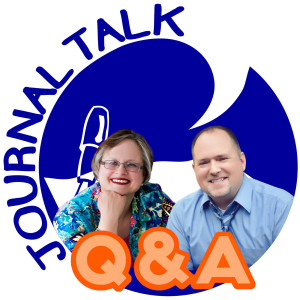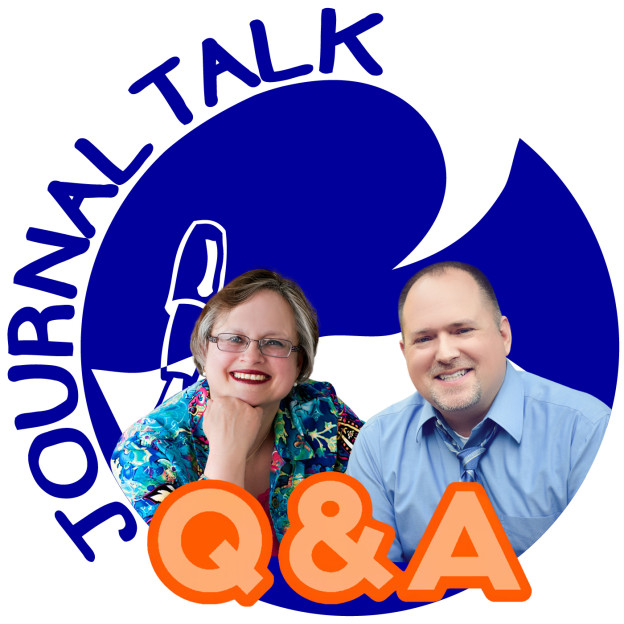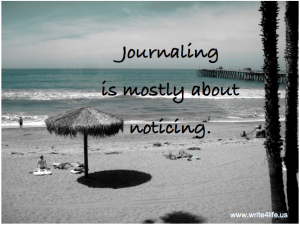Podcast: Play in new window
Subscribe: Apple Podcasts | RSS
 Tom asks, “Is there ever a time I would write in my journal when I’m not analyzing something?” To many, keeping a journal is a great tool and practice for problem-solving, so it might be natural to think that’s the only time to visit the blank page.
Tom asks, “Is there ever a time I would write in my journal when I’m not analyzing something?” To many, keeping a journal is a great tool and practice for problem-solving, so it might be natural to think that’s the only time to visit the blank page.
Many people have also used journaling as a practice in meditation or mindfulness, to enhance creativity, unlock the subconscious, or provide a whole array of benefits that weren’t prompted by a specific puzzle to solve.
Janet Wiszowaty of the Worldly Connektions radio show joins me in sharing many of the techniques and styles of journal-writing that help open or deepen self-awareness, even when there’s no precipitating problem. From letter-writing, Morning Pages, or stream-of-consciousness, to exploring feelings and needs, there are dozens of examples of how journaling can be more about noticing than analyzing.
Your turn to answer: How do you use writing to practice mindfulness? How do you describe the difference between self-analyzing and self-awareness? Post your responses at the bottom of this webpage, in the comments section, or come join the Friends of JournalTalk Facebook community to share your unique perspective and tips regarding the question-of-the-week.
You may email your own journaling question to be featured on a future episode of JournalTalk. Or, pick up the telephone and leave a voicemail with your question at 1-805-751-6280. When your question is featured, we will send you a thank-you gift for sharing your voice! (JournalTalk Q&A, Episode #40, March 1, 2016)
To Subscribe to JournalTalk:
By email: Click here.
Apple/iPhone/iTunes: Click here.
Google/Feedburner: Click here.
Blubrry site: Click here.
To Join the JournalTalk Community on Facebook: Click here.
To Get Power Insights in Seven Days: Click here.
To Listen Now: Click on the “play” button > at the top of this article.


